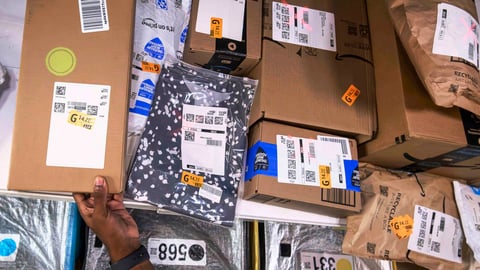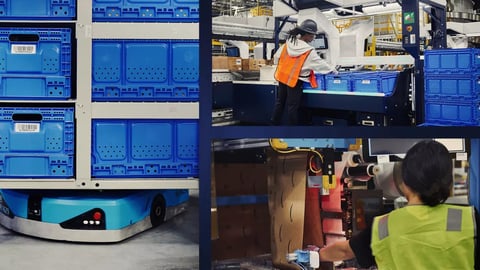Amazon makes three new Climate Pledge Fund investments
Amazon continues to financially back companies that develop technologies promoting sustainability as it integrates them into its operations.
Initially announced in June 2020 with funding of $2 billion, the Amazon Climate Pledge Fund is designed to enable Amazon and other companies to meet the Climate Pledge, a commitment to be net-zero carbon by 2040.
[READ MORE: Amazon launches $2 billion fund to promote sustainability]
The fund is intended to back visionary companies whose products and services will facilitate the transition to a zero-carbon economy and has invested in 31 companies developing sustainability-focused technology and services.
Amazon has announced Climate Pledge Fund investments in three new companies:
Molg
Molg enables circular manufacturing with robotics and design to help tackle e-waste. Its robotic micro-factories autonomously assemble and disassemble complex electronic products, and the company partners with manufacturers to design electronics with reuse in mind.
Paebbl
Paebbl turns CO2 into carbon-storing building materials. Amazon Web Services (AWS) intends to trial Paebbl’s supplementary cementitious material in the construction of one of its European data centers. The trial will provide data on the performance of Paebbl’s material in precast concrete applications.
14Trees
14Trees seeks to accelerate the production and delivery of lower-carbon buildings with its 3D printing technology. The investment is intended to help pave the way for state-of-the-art lower-carbon data centers, large-scale buildings, and utilities in Europe and the U.S.
In addition, Amazon is incorporating the technology of five Climate Pledge Fund-backed companies into its operations:
Forum Mobility
Forum Mobility provides accessible zero-tailpipe-emission trucking solutions for drayage in California, including building and operating charging infrastructure as well as offering Class 8 zero-tailpipe-emission electric trucks. Forum provided the charging infrastructure for Amazon’s rollout of the company’s first electric heavy-duty trucks in its ocean freight operations.
Glacier
Glacier uses AI-powered robots to automate the sorting of recyclables and collect real-time data on recycling streams for recycling companies and consumer brands Amazon has already partnered with the BOTTLE (Bio-Optimized Technologies to keep Thermoplastics out of Landfills and the Environment) consortium to develop a new recycling technology for these materials, and collaborating with Glacier enables the company to test ways to separate biomaterials from fossil-based plastics and send them on for recycling.
Hippo Harvest
Growing USDA-certified organic leafy greens in greenhouses, Hippo Harvest uses methods requiring 92% less water, 55% less fertilizer, and 94% less land compared to traditional farming, while optimizing production for cost efficiency with machine learning and robotics. Hippo Harvest’s products are available at various Bay Area retailers, including Amazon Fresh.
Rivian
Amazon now has over 15,000 Rivian electric vans in its fleet following an initial 2019 investment, delivering packages across the United States and in Europe.
Subeca
By utilizing Subeca’s single-device ultrasonic smart water meter—which is installed without cutting a pipe—Amazon intends to improve the efficiency of its water use across its fulfillment centers, grocery stores, offices, and data centers. Subeca will also help AWS partner with utilities to assist them with managing their water distribution systems and fix inefficiencies that lead to water loss.




